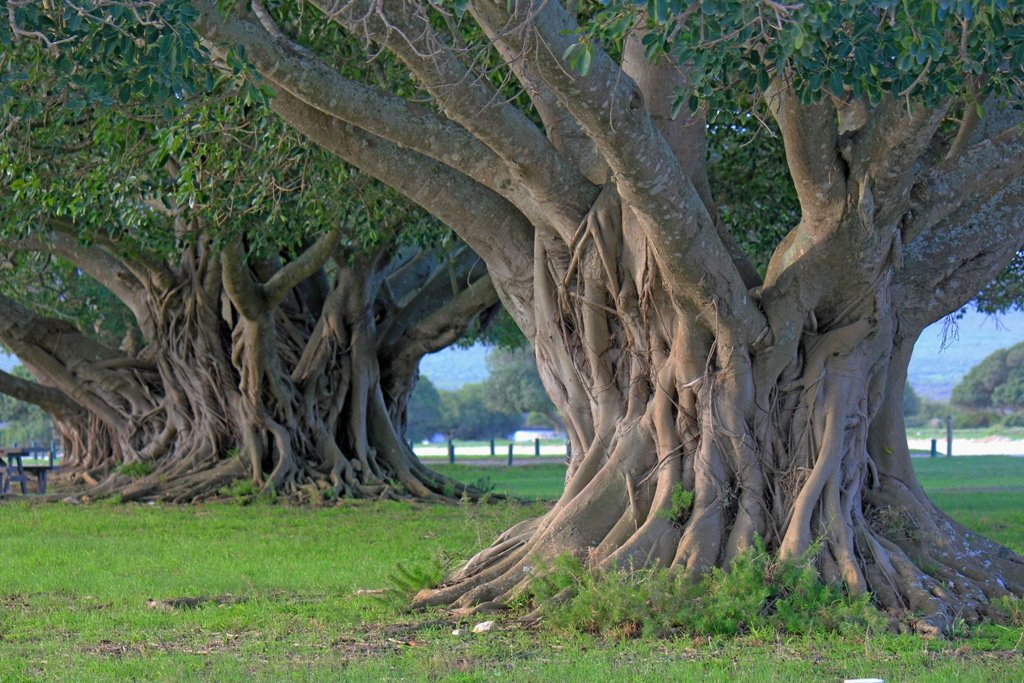Why “Wild Fig Network?”
Fig trees are known for their intricate root systems and multiple trunks.
There is a moment I relish when sharing about the Wild Fig Network: Watching people’s reactions to the name. Some smile, others look puzzled, and a few—while not exactly turned off—do not experience resonance. Yet, a question always follows: “Where did that name come from?”
I love this question because “Wild Fig” encapsulates our vision for the network in many ways.
"Fig" is a rich biblical metaphor for the spiritual health of a community. When God’s people followed God’s commands, figs bore abundant fruit. When they strayed, the trees withered, and the fruit disappeared. "Wild" invokes the wilderness, a recurring theme in Scripture. The wilderness is where God’s people escape, are tested, shaped, and encounter God. It’s a place outside institutional power where the Spirit works in unexpected and transformative ways.
As this network began to take shape, we envisioned communities not driven by power, control, or rigid dogma, but by a shared pursuit of fruitfulness, Spirit-led guidance, and co-creative relationships.
The metaphors deepen when you consider the fig tree itself. Believed to be one of the first cultivated plants, figs are remarkable for their adaptability. Their fruit—actually an inverted flower—relies on a specialized wasp for pollination, and their branches can take root in new soil to grow entirely new trees. These trees inherit the DNA of the parent while adapting to their new environment. Fig trees can serve as a keystone species in their ecosystems, providing food, energy, and shade to countless species in the system. Some varieties send roots from branches to form additional trunks, creating living scaffolds that support wider growth. Others “walk,” sending shoots to better resources or safer ground. Fig trees also build robust root systems that share resources, enrich soil, and strengthen one another.
This imagery reflects our hope for the Wild Fig Network: an adaptive, decentered, Spirit-led community thriving outside traditional denominational structures. We aspire to gather women and men united by a shared longing for good fruit rather than rigid theological boundaries. Like the fig tree, we aim to send out shoots to cultivate new growth, support flourishing branches, serve the ecosystem as a whole, and produce fruit that is worth savoring.
Mat Hollen
WFN Board Member
Pastor, St Thomas Church
Salem, OR


